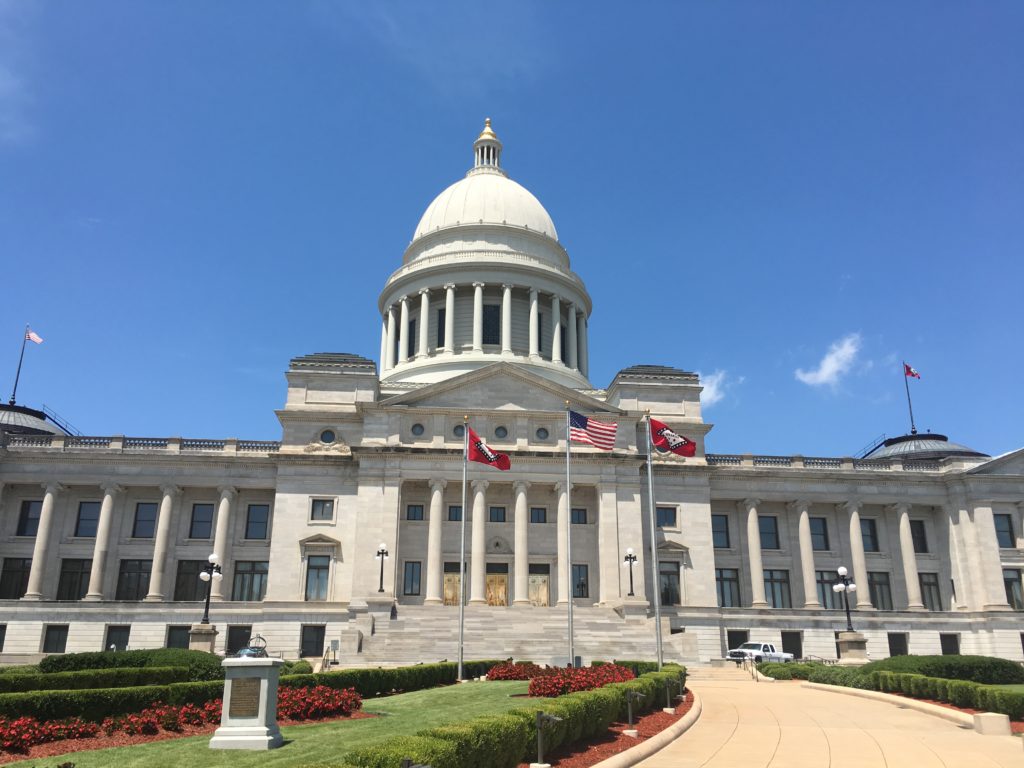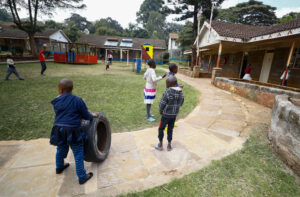
NASHVILLE (BP) – The Ethics & Religious Liberty Commission (ERLC) has released its first state public policy agenda, which examines upcoming pieces of state legislation that are noteworthy for Southern Baptists.
The agenda, released Wednesday (Feb. 21), is meant to work in tandem with the ERLC’s annual federal public policy agenda which released last month. The entity provided a state policy review in 2023, and this year’s agenda expands those efforts.
ERLC President Brent Leatherwood spoke to the importance of the document amid the current political landscape.
“With dysfunction dominating Washington, more and more consequential decisions are being made at the state level,” Leatherwood said.
“Each year, thousands of proposals that substantially affect the sanctity of life, the advance of religious liberty, the defense of marriage and family, and the protection of human dignity make their way through state legislatures around the country.
“This document, modeled off our federal public policy agenda, is our contribution to these important debates. It has been crafted with the feedback of state ethics leaders from different states and consultations with a number of Baptist state executives. Just as our distinctly Baptist voice makes a difference in Washington, we believe a cooperative Baptist effort like this can help shape policy in the halls of our state capitals.”
Much like the federal policy agenda, the state agenda is divided into the ERLC’s four main focus areas: Life, Religious Liberty, Marriage and Family and Human Dignity.
The opening of the agenda explains how state policy has become even more important since the historic overturning of Roe v. Wade in 2022, which returned abortion legislation to the states.
The changing landscape of abortion legislation is just one example of the growing impact of state legislation on a variety of political issues Southern Baptists have addressed.
“With many state legislative sessions already underway, the ERLC has identified key state legislation that overlaps with Southern Baptist priorities of which we want government leaders, elected officials, Southern Baptist Convention affiliates, and partners in our state work to be aware,” the agenda states.
“This agenda is not an exhaustive list of every policy priority, but rather, serves as a guide to equip Southern Baptists and lawmakers by providing examples embodying good policy that captures the concerns of Southern Baptists regarding the current debates happening at the state level.
“For any of these proposals, we encourage interested readers to engage with their Baptist state convention and local lawmakers, whose teams will have the latest information about developments related to these bills.”
The following are a sample of policy items for each focus area:
Life
- Promoting Pregnancy Resource Centers: Monitorproposed legislation that opposes pregnancy resource centers. These pieces of legislation rely on the claim that pregnancy resource centers are vestiges of misinformation and engage in deceptive tactics and manipulation to prevent women from obtaining abortions. One such bill, the Deceptive Practices of Limited Services Pregnancy Centers Act in Illinois, was signed into law in 2023, but is no longer in effect as of January 2024.
- Oppose Taxpayer Funding for Abortion: Oppose the use of taxpayer dollars to fund abortion or abortion-related travel at the state or federal level. One piece of legislation aimed at preventing this is Missouri’s House Bill 1563, which prohibits public funds from being expended to any abortion facility or affiliate.
Religious Liberty
- Supporting Conscience Protections for Healthcare Providers: Support legislation that protects medical professionals from ramifications for refusing to compromise their beliefs surrounding abortion. Examples of this kind of legislation include: Oklahoma’s Senate Bill 1883, Iowa’s Senate Study Bill 3006 and Vermont’s Health Care Freedom of Conscience Act.
- Protecting Conscience Rights for Adoptive and Foster Families: Support legislation that challenges the Biden administration’s recent regulations requiring prospective adoptive or foster parents to “affirm” a child’s chosen gender identity. Multiple states are considering legislation challenging these federal regulations, including Tennessee through the Tennessee Adoptive and Foster Parent Protection Act and Indiana through Senate Bill 193.
Marriage and Family
- Support Biblical Marriage: Oppose legislation which would expand the definition of marriage currently provided in state law in a way that deviates from one man and one woman. One such example is in Florida, where House Joint Resolution 167 would allow Floridians to vote on repealing part of the state constitution that defines marriage as solely between one man and one woman.
- Safeguarding Children from Harmful Gender Ideology: Support state legislation aimed at banning harmful “gender transitions” for minors. The desire for these transitions is usually based upon self-identification, often after experiencing manipulation and propaganda from affirming adults. Two pieces of legislation being considered this year are the Child Protection Act in Georgia and the Children Deserve Help Not Harm Act in South Carolina which would prohibit children from causing permanent harm to their bodies through “gender transitions.”
Human Dignity
- Opposition to Gambling: Through legislation like Senate Bill 1434 in Oklahoma, Senate Bill 386 in Georgia and anticipated legislation in Alabama, several states are considering expansions to gambling in their state this year.
- Stopping Sexual Abuse: Support legislation which would help in ending the horror of sexual abuse across the nation. Reforms such as Senate Bill 5280 in Washington and Senate Bill 87 in Kansas would expand requirements for clergy and ministers to report the abuse or neglect of children. Missouri is considering two proposals, House Bill 1741 and House Bill 1868, that would take steps to provide greater protections to nonprofits who share credible abuse allegations with other nonprofits and expand protections for victims who wish to provide testimony through video.
The full state policy agenda can be read here.
















